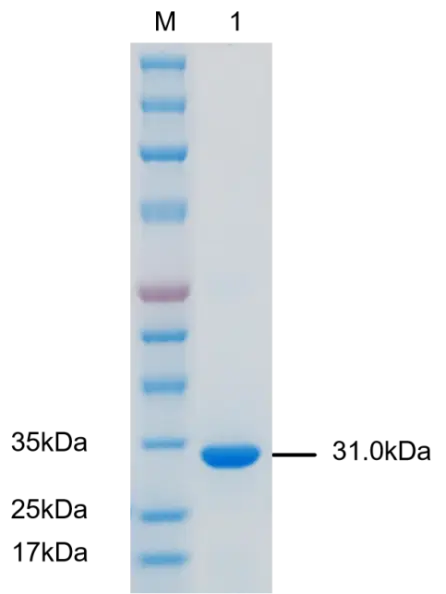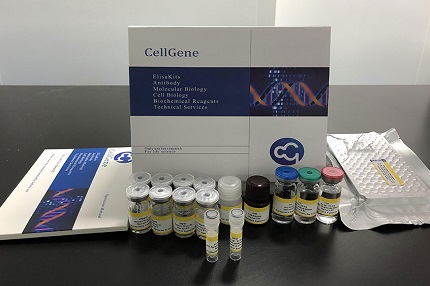Search ELISA Kits
TNF Superfamily Proteins Types
-
P01T0008P Human Tumor necrosis factor alpha (TNF-α) Protein, Recombinant
Cat. No.: P01T0008P
Uniprot No.: P01375
Expression Host: E.coli
Expression Region: Met1-Leu233
Fusion Tag: None

-
P03T0008P-T Mouse Tumor Necrosis Factor α (TNF α) Protein, Recombinant
Cat. No.: P03T0008P-T
Uniprot No.: P06804
Expression Host: E.coli
Expression Region: Leu 80-Leu 235
Fusion Tag: 6×His-SUMO (N-terminus)

TNF Superfamily Proteins FAQs
-
Q
What do TNF proteins do?
Tumor necrosis factor (TNF α) is a proinflammatory cytokine that is mainly produced by macrophages and monocytes and participates in normal inflammatory response and immune responses. Tumor necrosis factor (TNF) is produced in many pathological conditions, including sepsis, malignant tumors, heart failure, and chronic inflammatory diseases. It usually exists in blood and body fluids in joints.
-
Q
How does TNF affect the body?
TNF is a dense trimer composed of three identical monomer subunits. The effect of TNF on cells is mediated by cell surface receptors. The cytoplasmic tail region of the receptor contains a death domain (DD) or one or more TRAF interaction motifs (TIM). Taking death domain (DD) as an example, binding with ligands can recruit receptors containing death domain in cells, such as Fas-related death domain protein (FADD/MORT1) and TNF receptor-related death domain protein (TRADD), which together form the so-called death-inducing signaling complex (DISC). These molecules lead to caspase activation and apoptosis. TNF has a direct killing or inhibiting effect. TNF moves into cells after binding with corresponding receptors, and it is ingested by lysosome target cells leading to the decrease of lysosome stability, and the leakage of various enzymes leading to cell dissolution. It is also believed that TNF activates phospholipase A2 and releases superoxide to cause DNA breakage. Phospholipase A2 inhibitors can reduce the disease resistance effect of TNF. TNF can change the glucose metabolism of target cells, reduce the pH in cells, and cause cell death.


_00(1).webp)

